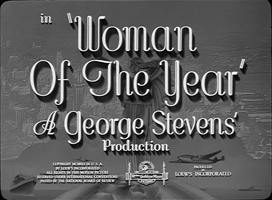
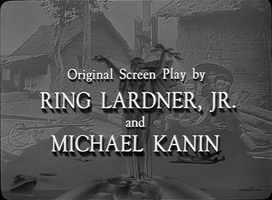
Winner in the category of WRITING (Original Screenplay) at the 15th Academy Awards, presented March 4, 1943 at the Cocoanut Grove, The Ambassador Hotel.
The other nominees were:
Wake Island — W.R. Burnett, Frank Butler
Road to Morocco — Frank Butler, Don Hartman
The War Against Mrs. Hadley — George Oppenheimer
One of Our Aircraft is Missing — Michael Powell, Emeric Pressburger
Opening of screenplay:
THE WOMAN OF THE YEAR
1FADE IN:
INT. SAM’S OFFICE, NEW YORK CHRONICLE – NIGHT – CLOSEUP – A MAN’S HAT
dingy and formless from long, severe wear. It lies on a desk. INCLUDED IN THE SHOT are a paper-weight made of a baseball covered with autographs and part of a receptacle filled with “books” of assembled copy paper and carbons. A typewriter carriage comes in and out of the shot rapidly, in synchronization with the staccato – two-fingered clicking of the keys.
CAMERA PULLS BACK to reveal Sam Craig as he finishes typing, pulls the pages out of the machine and starts to assemble what he’s written, frowning as he does so.
Sam’s office is one of a row of small cubbyholes which line one wall of the large room that houses the Sports Department. His door is open.
The large room which we see in b.g., adjoins the city room, from which it’s separated either by an actual partition or merely a railing. In either case, it has its own entrance in extreme b.g. leading into the corridor where the elevators are. There are about fifteen desks, each with its phone and typewriter, grouped around a long (or horse-shoe) table which is the sports copy-desk. At the moment only one or two of the regular desks are occupied, but the copy-readers are around their table in full force. A noteworthy feature of the scene is the business-like rather than hectic atmosphere usually associated with newspaper offices. The head copy-reader picks up a phone next to him as it rings. His voice is audible in b.g.
Head Copy-reader (into phone)
Sports department… No, he isn’t. I think he’ll be back after the fights… Okay.
(hangs up)
Sam’s frown of dissatisfaction deepens as he reads what he’s written. Still poring over his pages, he starts slowly through his open door toward the copy-desk.
2INT. SPORTS DEPARTMENT — NIGHT
MED. SHOT — COPYDESK
The head copy-reader looks up expectantly as Sam comes toward him. But Sam, his pace becoming slower as his discontent increases, comes to a full stop a few feet away from the desk and, with an expression of disgust, suddenly crumples his pages and chucks them into a wastebasket. The head copy-reader “Tch-tchs” sympathetically. Sam detours around the copy desk and goes toward the entrance.
First lines in film:
WHAT DO YOU THINK? TESS HARDING TELLS YOU DAILY IN THE NEW YORK CHRONICLE
TESS HARDING FEARED LOST IN CONVOY
TESS HARDING WELCOMED IN LONDON
TESS HARDING IN TALK WITH CHURCHILL
TESS HARDING CONFERS WITH F.D.R.
TESS HARDING CALLS FOR UNITY
SOLON DEMANDS TESS HARDING PROBE
HITLER WILL LOSE! SAYS TESS HARDING IN THE NEW YORK CHRONICLE
THE YANKEES WON’T LOSE SAYS SAM CRAIG IN THE NEW YORK CHRONICLE
— Miss Harding and Mr. Kieran both have their hands up. The full title, please.
— It’s Nights in the Garden of Spain.
— Uh, Nights in the… Garden of Spain.
— Hello, Sam.
— Hiya, kid.
BROOM Let’s not do the Mad Men thing where we gleefully list its transgressions against present-day feminism. Let’s try to be more nuanced than that.
ADAM Actually, I thought it was going to be a lot worse than it was. I think the ultimate compromise they arrived at was reasonable, even for a present-day feminist.
BETH I agree with that.
ADAM At times I was a little worried about where they were going.
BETH I was too, but I didn’t really believe that Katharine Hepburn would have chosen to be in a movie with the message that she should surrender her identity to housewifery.
ADAM But poor Gerald!
BROOM When you say “the compromise they arrived at,” you’re really just talking about the one line: “instead of being Mrs. Craig, why can’t you be Tess Harding Craig.” But we don’t see that put into action; we don’t know what it means, to him or to her. And the whole sequence before that, where she tries to cook, is meant to humiliate her.
ADAM But it’s affectionate. That sequence wasn’t mean-spirited. It’s funny in part because he’s good-naturedly playing along.
BROOM Because she shouldn’t even be trying?
ADAM Right. Alma’s not going anywhere — she’ll make the waffles.
BROOM It was very hard to tell whether the movie thought that Tess’s whole value system was bad, or whether it was just comically distant from our value system.
BETH I think it was the latter. The movie was trumpeting her individuality. I think it sided with her living outside of standards.
ADAM Well, towards the 60 percent mark, at the awards banquet, it did seem like it might descend into her being a shrewish villain. That’s the point when I worried that she was the villain and he was the good guy. But it didn’t actually go there. Ultimately it was a sweet movie — notwithstanding its treatment of the effeminate male underling. Who was right: she did have a battleship to launch, guys, so…! How was he supposed to know that it wasn’t a good time to interrupt?
BROOM Are we to understand that Sam hit Gerald over the head with a champagne bottle?
BETH Yeah, I think so.
BROOM That could be deadly! That’s very dangerous. And he may also have pushed him off the porch.
ADAM It turned out that the homosexual was their enemy all along, not Katharine Hepburn. Although we sort of knew that.
BROOM The movie wasn’t unkind to to Gerald until that last sequence; he just happened to be intimidating to our man Spencer. He was just humorless when it would have been more pleasant if he had been personable.
ADAM And he called her “Miss Harding” at an inopportune moment.
BETH That’s true.
BROOM When?
ADAM When he was walking in the door and handing his gloves to Spencer Tracy.
BROOM Why was that inopportune?
ADAM Because that wasn’t her married name, and wasn’t the right thing to say in front of Sam.
BROOM Oh. Were we supposed to read it that way?
ADAM That’s how I read it.
BETH I don’t know. I can read it that way.
ADAM I mean, she was pretty annoying for much of the middle stretch of the movie.
BETH Well, she was making some selfish choices.
ADAM She shouldn’t have brought home the Greek boy.
BETH She definitely shouldn’t have.
ADAM That was a funny scene though. I thought it was going to be a child of hers from a previous marriage.
BETH I knew it would be a humanitarian scheme.
ADAM You knew it would be a Greek boy?
BETH No, I didn’t know that.
ADAM I thought one of the strangest things about the movie was the weirdly tepid raciness. There were clearly meant to be some titillating jokes in there. But they were swathed in cottonballs. That might have been a period thing or it might have just been a tastefulness choice. It was weird, to my modern sensibility.
BROOM What was weird?
ADAM The way that the racy jokes landed.
BROOM Which particular jokes? You said “this is rather racy!” when they first went back to her apartment after their date.
ADAM Well, that scene was strange, because the implication was clearly that they were going to hook up. And he tells her that he would have with other girls. I don’t know, that seems legitimately shocking for a movie from 1942.
BROOM The implicit endorsement of premarital sex?
ADAM The acknowledgement of it. But no, I’m talking more about the joke when he’s talking to his mother and says “You can’t ask a girl that! I don’t know, mom! All right, I’ll ask her if she’s a good cook.”
BETH Right.
ADAM I didn’t have a problem with it. I just thought it was amusingly mild.
BROOM You thought “I’ll ask her if she’s a good cook” was a punchline to a virginity joke?
BETH It was.
BROOM But in the final scene we see that whether she’s a good cook turns out to be material. And I thought the point was that when his mother says “I don’t know if she’s good enough for you,” she isn’t just asking about virginity, she’s asking about femininity. Which is why she’s sent the cookbook that we see at the end.
ADAM I know. But the joke of the phone call is nonetheless “Ma, you can’t ask that!”
BETH Yeah, I think so too. I think that’s how the audience was supposed to hear it.
BROOM Oh. Because in that earlier scene, I was already thinking, “Ah, Tess’s overachievement makes old fogeys like his mother suspicious of her.” Whether or not you read it as being about virginity, she’s this advanced feminist modern woman, and the question is whether that kind of person is a proper wife… So clearly when the mother brings up cooking, that’s genuinely at issue.
ADAM Clearly that’s the literal function of the scene. I’m just saying that the way they set up the joke, it was a virginity joke. There were a couple other funny things like that. I’m not trying to just poke fun at its pastness, but it was funny to me the ways that it was both very frank about sex but also amusingly indirect.
BROOM They did do the whole Marx Brothers stateroom scene except as a “cockblock” joke.
ADAM Poor Dr. Lubbeck. The other thing I was going to remark on about the screenwriting is that the pacing was super strange, from a modern perspective. I’m not saying it was ineffective, but it was very leisurely. In that last scene, before he came in, she spent like five whole minutes setting up the breakfast.
BETH It was enjoyable to watch, though.
ADAM Yeah, it worked! But it’s just funny to watch Katharine Hepburn, you know, moving around a kitchen.
BETH Reading instructions.
BROOM I thought that was an intentionally bold choice, that we should arrive at this final kitchen scene and it should suddenly get very slow. Remember that movie Big Night, with Stanley Tucci and Tony Shalhoub?
ADAM No.
BROOM They think that their restaurant is going to have a really big night because a famous person is coming, and then it doesn’t happen, and it’s a big letdown, and they blew all their money and it’s not clear what’s going to happen to them. And the very last scene, after this big downer, is just one shot where Stanley Tucci makes eggs, and it takes however long it really takes. And they must have gotten that from here. We go through this whole movie with its own narrative rhythm, and then we end with the rhythm of a real task. Of course, the tasks became farcical here. But I actually thought the pacing was strange much earlier, in ways that I was less sure I was supposed to savor. The whole first half had no conflict in it.
BETH The drinking scene was just very leisurely. And the baseball game.
ADAM It was affable rom-com stuff.
BROOM Yeah, but there wasn’t even a romantic comedy plot; just straight romance. They liked each other, they went on dates.
ADAM Well, there were some moments of conflict. Like: Gerald won’t let him into her office, so he reads the Chinese newspaper. There were little bitty conflicts.
BROOM To me it really felt like we were just gradually falling in love, and then getting married, and then living together. It took me a long time to understand what the specific thrust of the movie was.
BETH That’s surprising to me. I knew that’s what the conflict would be, immediately. Maybe that’s only because I came in knowing who each of them is.
ADAM She invites him to a party and there’s all kinds of foreigners there. Get it?
BROOM I just thought that was a kind of charm comedy. She’s upmarket and he’s downmarket.
ADAM But she’s also thoughtless.
BROOM I thought that was just part of his comic journey toward the girl he was falling for. I didn’t see it as having asserted itself as a thematic problem. Yes, I see in retrospect that it wasn’t just color, it was supposed to be seen as actually frustrating to him. But since the mode of screwball is [shrugging tone] “oh dear, this leopard just got into our apartment…” it just seemed like comedy, not conflict.
ADAM Spencer Tracy only has one face: eyes bugging out, annoyed. He’s a redhead, right?
BETH Yeah.
ADAM You can just seem him flushing to the roots of his red hair. By the way, how old were they, in this?
BETH I’m curious to know.
ADAM They seemed like a hundred years old.
BETH They seemed like they were in their early 40s.
BROOM They were probably supposed to be playing mid-20s; they probably were each around 30. Let’s see.
ADAM Well, no, they each already had distinguished careers at that point.
BROOM Let’s see. Katharine Hepburn was born in 1907.
BETH She was 35.
BROOM Which is about how she looked. She looked like the mature 35 of that era. And Spencer Tracy…
BETH Had to be older.
BROOM … was born in 1900. 7 years older: 42.
ADAM Okay, that sounds about right.
BETH But their parents were in great shape!
BROOM Yeah, they looked the same age as the kids. It was the same as Cary Grant’s mother in North by Northwest. When Spencer Tracy was standing with the older woman, and she said, “drive me back?” I felt a little awkward, because we were supposed to see her as completely not a conceivable or appropriate match for him, but she looked like an appropriate match for him.
ADAM I agree with you: at the end the pacing was probably deliberate, and it worked — but they could still have trimmed 20 minutes out of this movie. I was expecting a lot more rat-a-tat dialogue, a la His Girl Friday. This wasn’t really that. He would say something, and she would say something really fast, but then they would just look at each other. It was funny, though. We laughed many times.
BETH I laughed more than I usually laugh at movies.
BROOM During the first section, I thought it was so romantic and charming that I wondered why it isn’t more fondly talked about. But then as it became clear that the central issue is one that has aged, as opposed to being timeless, I understood. And then it ended in a very strange place, for me. It left me not with a bad taste in my mouth, but with surprise that we were left to resolve it for ourselves. I thought it was going to really resolve the issue one way or another.
ADAM I agree that the specific gender flavor of it has aged, but this is basically what the movie Hook is about, right? You know, when he throws his cell phone into the snow at the end.
BROOM You’ve invoked that as a stupid and offensive thing quite a few times.
ADAM Well, that’s the same thing as hitting Gerald over the head with a champagne bottle.
BROOM Those aren’t the only two times that has happened. At least what was wrong with her was mostly that she couldn’t see what was right in front of her, as opposed to simply that a woman shouldn’t be doing these things in the first place. However, the linchpin line — that we had to rewind and confirm that he had really said — that “the woman of the year… isn’t really a woman at all,” is painful.
ADAM Oof. Yeah, what a devastating thrust. Though she doesn’t really take it that way.
BROOM I mean that it’s painful to watch now. Because either the movie is endorsing that it’s wonderful that she’s a woman and she does all these things, or it’s not.
BETH Or it could be that that’s just his problem. The movie wasn’t necessarily taking his side, even though at that particular moment she had turned us against her by bringing in the Greek boy.
BROOM I don’t know. Sam didn’t seem to be portrayed by the movie as having a distinct psychology that we were supposed to track. Admittedly that may be a problem with my watching of it. But I was waiting for it to present some kind of equal failures on both their parts.
BETH It didn’t really care about him.
ADAM Yeah, he doesn’t have much of a personality.
BETH Which made their partnership a little bit confusing.
ADAM He spent half the movie just in reaction shots.
BETH Because she’s such a force.
ADAM And he’s just rolling his eyes: at Dr. Lubbeck, or at the foreigners at the party…
BETH Although that was clever of him, to call in his ragtag troupe of lowlifes.
ADAM That’s true. “You leave it to Flo!”
BROOM He was supposed to be someone for us, the audience, to identify with, because we were expected to share the reaction: “Look at them high-flyin’ folks — well that’s just fine for them! Now, for a woman to be doin’ all that? Hoo-ey brother, I don’t know what I think of that. But I’ll tell you this: if she doesn’t remember my birthday!… if she doesn’t call me when we’re both in Chicago!…”
BETH “If she doesn’t notice my new hat!”
BROOM “If she doesn’t notice my new hat, boy, there is a problem! I kinda thought there was a problem, and now I know there’s a problem.” If he had been a more complete character, it actually wouldn’t have been as disturbing to me.
ADAM Well, I was thinking about this in the context of the romantic comedy tradition. In My Best Friend’s Wedding, the guy doesn’t have a personality either. Maybe there’s something about the fact that it’s a Hepburn-Tracy movie that makes it seem like they should have equal billing — but it’s really a movie about her, just like My Best Friend’s Wedding is about Julia Roberts and Cameron Diaz, and not about… I don’t even know who played him.
BROOM Dermot Mulroney.
ADAM Thank you. It also occurred to me that if this were a contemporary romantic comedy they would each have a best friend.
BROOM They did: he had Pinky and she had Gerald.
ADAM Then they could have talked about their feelings, instead of just having to play out their conflicts with each other.
BROOM They each got to talk about their feelings with the father and the father’s girlfriend.
BETH But contemporary movies overuse the best friend.
ADAM Yeah, it’s a little creaky, but there’s a reason for it. It’s also somebody who can intensify the boyness of the boy character and the girlness of the girl character.
BROOM He was a “sports writer”! What more do you want?
ADAM She didn’t have any lady friends. Except for Gerald.
BROOM She had that woman, the older family friend.
ADAM Her aunt.
BROOM Wait, that was her aunt? Her aunt married her father?
BETH Yes.
ADAM Her mother died when she was a baby and her aunt raised her.
BROOM Okay. I didn’t take in who that woman was. I missed the moment when she introduced herself.
BETH It was at the speech, where he enters through the back curtain. She says, “I’ve always felt about my aunt that she was my mother…”
BROOM Oh right, “… because she was my aunt.”
ADAM No, the aunt says that, while they’re waiting for the plane.
BETH Oh, okay.
BROOM I didn’t recognize that woman as anyone who had been at the speech. I thought it was just a friend who had showed up. I was distracted.
ADAM What’s the classic Tracy-Hepburn movie?
BROOM Adam’s Rib?
ADAM Maybe that’s what I was thinking of when I said His Girl Friday.
BROOM I’ve never seen it.
BETH This is the first one I’ve seen.
ADAM It was certainly amiable and perfectly pleasant to watch. Was there any particularly clever writing? I guess some of the jokes.
BROOM I thought the writing was good throughout, smartly put together. I thought the depiction of her intellectual international stuff was well handled: not cartoonish but also not followable. I mean, it was a little cartoonish, but not in a ridiculous way. Dr. Lubbeck was not Dr. Strangelove. Those people didn’t look like a bunch of Mr. Peanuts. The headlines at the beginning, and the stuff she said on the phone, always sounded serious enough. I appreciated the way that was done, since the whole scheme of the movie was basically for us to feel intimidated by it.
ADAM Alienated from it.
BETH Like we’re on the outside.
BROOM Yes. Spencer Tracy can’t read the Chinese newspaper he’s holding, but that’s his own doing; it’s not as though Gerald is saying [snooty voice] “If you can’t read this, then you, sir, are an idiot!” I liked the dynamic between the two leads when they were falling for each other. It was genuinely romantic. It wasn’t an absurd fast-talk movie but it was still somehow charmed.
ADAM Although they fell in love much too quickly. For a movie with leisurely pacing, that happened awfully fast.
BETH In two days, it seemed like.
BROOM Well, they went to the baseball game, and then to that party, and then he went to see her the next day, and then she asked him to take her to the airport… it wasn’t just a two-scene deal. It was quite a few scenes before they really acknowledged to each other that they had fallen in love. And then they got drunk, and then they went back to the room, and then he left the hat, and then she got him a hat… Remember all those things that happened?
BETH I really liked the party scene, by itself, as just a scene of feeling completely lost and uncomfortable at a party.
ADAM The fact that it went on much too long also contributed to that. Because it was like, “Lgh, this is awkward.” And the Turk: that was particularly awkward.
BROOM Because Sam called the turban a towel?
ADAM No, because I thought he was going to turn out to speak English. “Yes?” “Yes?”
BETH Just as a standalone snippet, I liked that part.
BROOM I enjoyed that sequence too. I enjoyed all the little setpieces. It was all very well balanced. And I can imagine this in 1942 being “the adult entertainment of the season!” It’s all very well put together. So I don’t know why it had to end with him hitting Gerald on the head with champagne. That’s ridiculous.
ADAM Well, Gerald, as the symbol of her officious thoughtlessness, had to be dispatched in some fashion. But that does seem a little bit too Looney Tunes.
BROOM I really didn’t see that he needed to be dispatched. I thought the movie was going to end with them declaring that “this is our home, and this is how we’re going to be at home.” Why she told Gerald to show up there I don’t know.
ADAM She didn’t. He tracked her down.
BETH He traced the call.
ADAM I did think the funniest line in the movie was “Miss Harding said if you’re making eggs she’d like some. She also said I should tell you if I was hungry too. I am.”
BROOM The whole thing was very charming. But it came a little too close to home for me to embrace it as a favorite. Not too close to my home, but to issues of empathy. And, like I said when I watched Summertime: Katharine Hepburn’s energy always feels to me like it has something incomplete about it, like it’s a little bit too brassy to believe.
ADAM She’s not relatable at all.
BROOM And her movies all use that, and say: “that’s just cover, she really needs love just like anyone else.” Which I believe! But then the way they depict that love, how she needs it and how she gets it, it always feels a little shallow, like it’s good enough for the movie’s purposes but it doesn’t really resolve the real issue. I had no sense, at the end of this, that her issues are even remotely resolved. They gave her a whole psychological background: she didn’t grow up in America, she was traveling all around, she never really lived in one place… So when the ending is that he says “You don’t need to cook for me! But you need to be more wifely in other ways!” and she says “Okay!”… I didn’t feel that she would know what that means, or that he would know what that means, or that she will ever be quite happy, or that he will ever really get through to her.
ADAM But that’s a mature comedy, isn’t it? It doesn’t have to be fully resolved; they’re just not going to get divorced right then. Yay, we’re not getting divorced!
BROOM Yes, that’s how I felt at the end: they’re not going to get a divorce today. Someone — maybe I’m still getting this from that Molly Haskell essay — someone called the movies in this genre “comedies of remarriage.” They’re always about a relationship that falls apart — and then the two people each have to find the deeper insights that make it more meaningful, so that in the end they get to be together again.
ADAM Quite literally in this one, she says to him, “Will you marry me?”
BROOM And yet the “first” marriage takes up so much of this movie before the “problem” presents itself, and then in the last scene they just sort of say “ah but don’t you see?” and then it’s suddenly over. It feels like that was just a very thin covering they put over what is essentially an anti-feminist critique built into the rest of the movie.
ADAM If you had walked out of the theater as she’s driving back in the car, you’d think, “Ugh, what a retrograde, regressive movie.”
BETH But didn’t he say “I’m disappointed in you for even trying to do this stuff that has nothing to do with who you are”?
ADAM Yeah. He was saying “I’m disappointed in your attempt at being inauthentic,” not “I’m disappointed in your waffles.”
BETH Which I feel is a very worthwhile message.
BROOM That’s right, and earlier when she gets on her knees and wants to be the little wife, he says, “you’ve been a phony before but this is the worst.” But he never quite said the thing that I really wanted him to say, which was “You’re the most amazing woman in the world, and that’s who I want to be with.” Because he didn’t really give a shit that she was amazing!
BETH Yeah, but in a way, that was what made him deserve her, because he didn’t idolize her, he just liked her. He just loved her.
ADAM He went toe-to-toe with her.
BROOM I’m not sure he did. He kind of just slumped around.
BETH I’m filling in blanks for myself to make it work out.
BROOM I was hoping they would fill them in for us, which I guess represents a kind of nervousness on my part. “Please say the right things and make this okay!” They didn’t sin as badly as I thought they would, but once I started worrying, I couldn’t shake it. Once he said that line, and revealed that the meaning of the title is an ironic question: “Is the ‘woman of the year’ a woman?” That’s some disturbingly high stakes! And they never really “kissed and made up” in the way that would have healed me from having been disturbed by that. But yes, all the stuff they did was cute.
ADAM You’re right; it’s very difficult to imagine Katharine Hepburn playing an ordinary woman. She couldn’t be a housewife. It would be completely unbelievable if she played a housewife!
BETH I don’t think she ever attempted anything like that.
BROOM But try imagining some “more feminine” Hollywood actress playing this role, playing the woman of the year. Myrna Loy or someone, someone who was more of a glamour girl.
BETH Or Ginger Rogers….
BROOM I picked Myrna Loy because she also had an “intellectual” thing that she played.
ADAM Marion Davies! Lucille Ball.
BROOM I think that what you would feel when any other actress was struggling to cook would be, “well, I’m sure you’ll get the hang of it soon enough.”
BETH You’re probably right.
BROOM That’s why that scene was also strange, in insisting that she needed to be humiliated. Because she takes off her coat with some enthusiasm, with the attitude that she’s smart, she can follow instructions, she can do this. And I thought, “yes, that’s probably right. She can figure it out.”
BETH She’s not an idiot.
ADAM She can speak Slovenian.
BROOM She can speak every language in the world, so she might not know how to turn on the burner first thing, but once she figures it out, she’s gonna have it down for life. She learned the rules of baseball in one session!
BETH Sort of.
BROOM The gist was, he says these things once and she takes them in. She’s sharp enough to follow anything, even if it’s not her thing.
ADAM Yeah, you’re right. But she had to be taken down a peg, just in terms of the movie’s geometry.
BROOM Well, that’s exactly it. It’s the idea of pegs and being taken down one that worries me. Does anyone really need to be taken down a peg?
ADAM It wouldn’t have been a satisfying ending if she just said “I love you and I promise to do better” and then she made him waffles. Not only would that not have had any dramatic structure, but it wouldn’t have been satisfying.
BROOM When she hears the marriage vows and tears up, and then drives back while we zoom in on her face, I thought for sure she was going to arrive and makes a speech: “I realized something that I never realized before: I want more than just to be woman of the year. I want you and that means that our home is a place that matters more to me than I knew, and now we’re going to start again.” I thought she was going to invent all that herself!
BETH That’s the Jerry Maguire ending. I don’t think a movie made at this time would have had a line like that.
BROOM Well, I didn’t do a suitably comic version of it. But in this ending, the comedy was just “She don’t know what she doin’!” Also: even if she put yeast in the waffle batter, it wouldn’t come out looking like a rubber balloon in the waffle iron.
BETH It looked like a frog.
BROOM And why did the coffee maker have that huge glass bowl on it?
BETH It was a percolator. I don’t know how those work.
[we read the New York Times review]
BETH So he felt that the ending was essentially that she had returned to find out how to be a wife.
ADAM He seemed to see this as a movie not about men vs. women so much as eggheads vs. ordinary Joes.
BETH It was interesting that he didn’t really mention feminism at all, but I guess that wasn’t part of the public dialogue at the time.
[we then read about the original ending and Ring Lardner’s displeasure with the reshot ending seen in the finished film]
BROOM Like I said! There’s needless humiliation there. But I also understand why their original ending didn’t work, this Gift of the Magi place-switching. Again, I think it goes back to the real problem being that Sam doesn’t have enough of a character.
BETH I think that’s right, yes.
ADAM He’s in a language school in the original ending? That would suggest that he feels shame at being not her equal, instead of just irritation at her.
BROOM Which would have made the movie a little richer; if she could tell him “I don’t need you to be one of these people,” that would mean she had some wisdom to offer him, too: forgiveness for his shame. Without that it felt imbalanced. And surely it didn’t originally end with them launching Gerald. That definitely felt like producers getting in there. “Ya know what people’ll like?” Cigar, cigar.
BETH I did like the last scene, though! I laughed a lot.
ADAM I did too!
BROOM Did you not cringe when he said he launched Gerald?
ADAM We all did!
BROOM Look, I don’t have to dislike things like that. Most of the what I cheerfully lap up from old movies is exactly that they do seem like some producer came up with them, such that they just cluelessly resemble other old movies. But here it did leave me feeling a little queasy.
ADAM She was originally going to write his column for him, just to be a good wife? That’s weird. It’s like, “You think you’ve been castrated so far? Now you’ve been rendered completely superfluous. I can do my job and your job.”
BETH “And you’re not really going to learn these languages; come on.”
Last line in film:
— I’ve just launched Gerald.
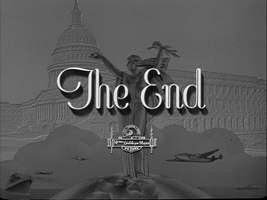
The only footage of the 15th Academy Awards ceremony that I can find is the newsreel seen here (scroll down). The Acceptance Speech Database contains more text than appears in the newsreel, so clearly there is more footage out there somewhere. But even that database doesn’t have any record of most of the awards, including the writing awards. Nor are there any photos of the presentation of the Original Screenplay award.
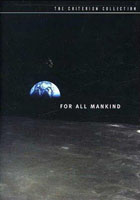 2009:
2009: 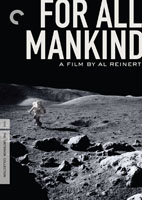
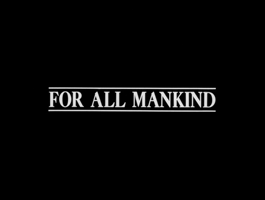
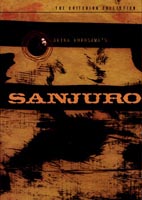 2007:
2007: 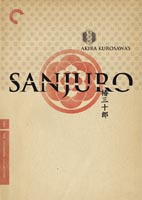
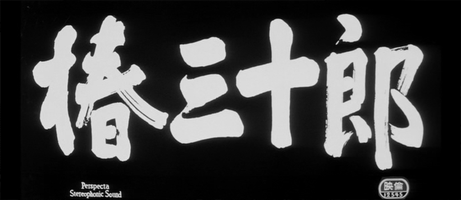



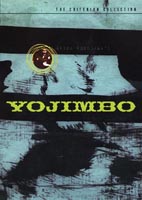 2007:
2007: 
